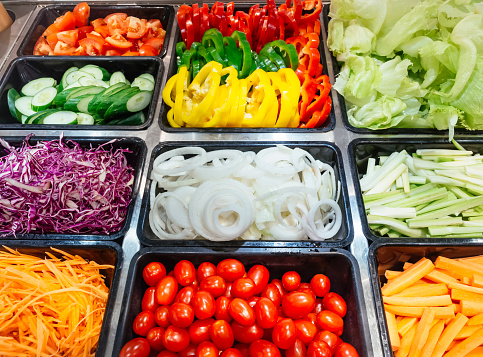6 “Healthy” Foods You Should Avoid
Don’t fall for it—the marketing ploy that wants to convince you that you’re eating a healthy food when you’re not.
Here are six foods that can fool you:
1. Low-Fat Snacks
Studies at Cornell have found that we tend to eat 50 percent more of foods labeled “low fat” than the regular version of the product. Scientists call this “the halo effect,” because eating things we perceive as healthy makes us feel virtuous. Also, many low-fat foods tend to have more sugar to compensate for the lack of fat, which adds flavor. Stick to natural low-fat snacks, such as fruits and veggies, or judicious servings of low-fat dairy such as cheese sticks or yogurt. Or, if you’re opting for low-fat, be very mindful of your portion sizes. Just because a snack is low-fat doesn’t mean you can eat the whole box. Need some help mastering this one? Nutrisystem makes sticking to proper portion sizes simple by doing the measuring for you!
2. Reduced-Fat Peanut Butter
Not all fat is bad for you. While peanut butter is high in fat calories, it’s chock full of monounsaturated fats, which are good for your heart. And if you read the labels, there’s not a big difference in calories between reduced and full-fat peanut butter. You’re better off looking for reduced or no-sugar (natural) peanut butter which usually has less salt as well as sugar, better for your heart and to lower your risk of type 2 diabetes.
3. Multigrain Bread
Sounds healthy, doesn’t it? But multigrain bread may be no healthier than white bread. Both are made with refined grains—with the fiber removed—it’s just that the multigrain bread includes more than one kind of refined grain than plain old white bread. Check the label of your bread and look for the words “whole grain” or “whole wheat,” or “whole grain flour.” That’s the really healthy bread, chock full of filling fiber. Look for three grams of fiber or more.
4. Fast-Food Salads
Yes, veggies are good for you, but many fast food salads have more calories, fat and sodium than the burgers because of all the add-ons, like cheese, meat and heavy dressings. Like low-fat foods, salads wear that “health halo” that often disguises calorie bombs. Many chains now list calories right in the store; if not, you can find nutritional information on the company’s website. Surf the web before you place your order.
5. Vitamin-Enhanced Water
Again, check that label. One popular brand, while it does contain vitamins, is also loaded with sugar. The difference between vitamin-enhanced water and soda? Just the lack of bubbles. Get your vitamins and minerals from real food.
6. Farmed Fish
Fish has some pretty hefty health benefits. Salmon, for example, is one of the richest sources of heart-protective omega-3 fatty acids on the planet. Omega-3s, also found in other fatty fish such as tuna, haddock and herring, help support brain development in the fetus and babies, and fish is an excellent source of protein. Problem is, farm-raised fish is often contaminated with organic chemicals that may raise cancer risk and affect growing children. Experts like the American Heart Association recommend switching to wild caught fish and to eat two servings a week of a variety of fish, including those with lower levels of chemicals such as canned tuna and trout. Of course, some fish is better than no fish, so if farm-raised is your only option, it’s OK to occasionally eat it. Just make sure to opt for wild caught fish when possible.
The post 6 “Healthy” Foods You Should Avoid appeared first on The Leaf.
from The Leaf https://ift.tt/2Ks5BOW






Post a Comment